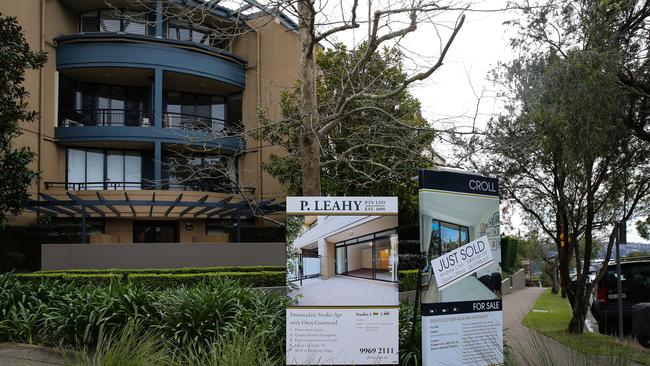
But we also need to understand the flow on ramifications of the bizarre events which the statistician says took place in the September quarter, when a series of highly paid Australian non mining CEOs allowed their salary bills to rise at an annual rate of about 10 per cent. It's no wonder the staff at NAB voted against five per cent pay rises.
And while Treasurer Jim Chalmers understands the market forces, Prime Minister Anthony Albanese and Employment Minister Tony Burke are advocating even higher wages, ignoring the dangers that creates in the current environment.
Meanwhile, the avalanche of higher salary money in the hands of staff in many sectors and the delayed impact of interest rate rises plus savings have been key forces in the recent spending sprees.
In the United States we are seeing a similar trend where the spending that follows salary rises is nullifying some the impact of higher rates
In Australia, at the same time, profits in both mining and non mining have slumped.
The obvious explanation is that CEOs failed to increase their prices and/or slash costs, causing profits to fall sharply. But that’s unfair. What actually happened in the non-mining sector was that heavy losses were incurred in the building industry, as fixed price tenders and bad government regulations (particularly in NSW) caused heavy losses.
Many builders and building suppliers have gone out of business and the capacity of the industry has been greatly reduced. But it is still plagued with staff shortages, which are being rectified via migration.
There are a number of favourable indicators that Australian inflation has started to fall. They include lower oil prices, a stabilisation of building costs and lower Chinese import prices partly reflecting lower US orders
One of the first indications the looming blows to ordinary Australian households is severely limiting the ability of companies to pass on cost rises is the fact that over the past three months consumer prices have increased at an annualised rate of 4.3 per cent – well below the annual inflation rate of 6.9 per cent.
While a big chunk of wage earners are pocketing double-digit percentage increases, overall Australian-wide rises are way below inflation and, after Christmas in 2023, the full impact of the interest rate rises will drain household pockets at a time when house values are falling. That’s a nasty scenario which means that if the Reserve Bank increases its official interest rate from 3.1 per cent to 3.65 per cent or above, as the market expects, there will be deep carnage in Australia.
Nevertheless, many in the market expect even higher interest rate rises but, as I’ve reported many times, the CBA continually lectures the Reserve Bank about what is going to happen if interest rates rise above the current 3.1 per cent.
If the Reserve Bank is listening to the CBA, it will have a breather on interest rate rises early next year.
The US market is optimistic the Federal Reserve will not be as aggressive on US interest rate rises as had previously been expected, and so bond prices rose.
But this week, US bond markets started to have second thoughts and fell. The trend in the US bond market will be very important for Australia because if markets return to expecting higher interest rates, our currency will fall, putting pressure on their costs.
The US, European and Australian central banks are all trying to engineer their economies into a slowdown which lowers inflation to a set of predetermined targets without creating a recession.
It will be extremely difficult to be achieved.






The latest interest rate rise by the Reserve Bank will lock in a series of downward pressures on significant parts of the Australian economy. Shareholders in companies caught in this downturn should fasten their safety belts.